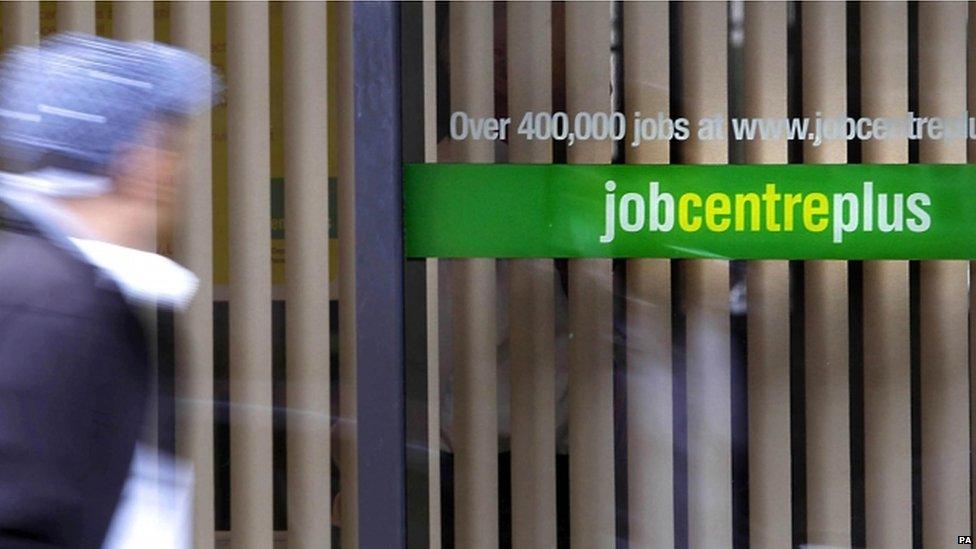Reality Check: How much benefit money is lost to fraud?
- Published

Let's start with a question.
What percentage of benefit payments do you think is lost to fraud?
A survey in 2013 by Ipsos Mori suggested people believed that £24 out of every £100 spent on benefits was fraudulently claimed.
What do you think - too high, too low?
Want to know the real answer?
It's £1.10 in every £100.
The figure is an estimate from an official government document, from the Department for Work and Pensions (DWP), published last December , externaland refers to the financial year 2015-16.
The figure may well be a lot less than you thought, but it's still a lot of money. In 2015-16, total spending on benefits was £172.3bn, which means that £1.9bn was fraudulently claimed.
The fraud rate - 1.1% - rose from 0.8% in 2014-15, and now stands at the highest recorded rate. That may be because more people are "at it", but probably not.
After the end of the 2014-15 financial year, officials changed their methodology, which has resulted in more overpayments being attributed to fraud rather than claimant error.
The DWP has looked at five benefits in particular - universal credit (UC), housing benefit, employment and support allowance (ESA), jobseeker's allowance (JSA) and pension credit.
They calculated that the largest fraud in 2015-16 - totalling about £1bn - was in the housing benefit system. These fraudulent claims amounted to 4.1% of the total paid out in housing benefit.
In fact, the recalculation carried out recently has led officials to believe that fraud is on the rise in housing benefit, ESA and pension credit, but falling among claimants of JSA.
In UC - which sees six benefits rolled into one monthly payment - the statistics are less certain as there are fewer claimants and the benefit hasn't been fully rolled out yet.
But officials believe that fraud in UC is less than on JSA.
Honest mistakes?
Fraud payments are part of a wider category - benefit overpayment - which also includes honest errors by claimants and mistakes by officials.
The total overpayment in 2015-16 was £3.3bn, about 1.9% of all benefit payments.
But bear in mind that not all of that is lost - the department does recoup some of it and £1bn was repaid to the Treasury last year, which still means that more than £2bn was lost.
The DWP's inability to reduce fraud and error to much lower levels led the National Audit Office to chastise the department last summer, "qualifying its audit opinion" in official speak.
But the DWP's accounts - and those of its predecessor departments - have been similarly berated every year since 1988-89.
Underpayments
One final point - while some people are being paid too much, others are receiving too little.
The amount underpaid to benefit claimants in 2015-16 was £1.7bn, or 1% of total expenditure, the highest recorded rate. Most of it was due to errors by the claimant (£600m) with the other £400m due to mistakes by officials.
So in 2015-16, the government overpaid benefits to the tune of £3.3bn, of which £1bn was recouped, while claimants were underpaid £1.7bn.
It all means the Treasury was £600m down due to fraud and error in the benefits system.


